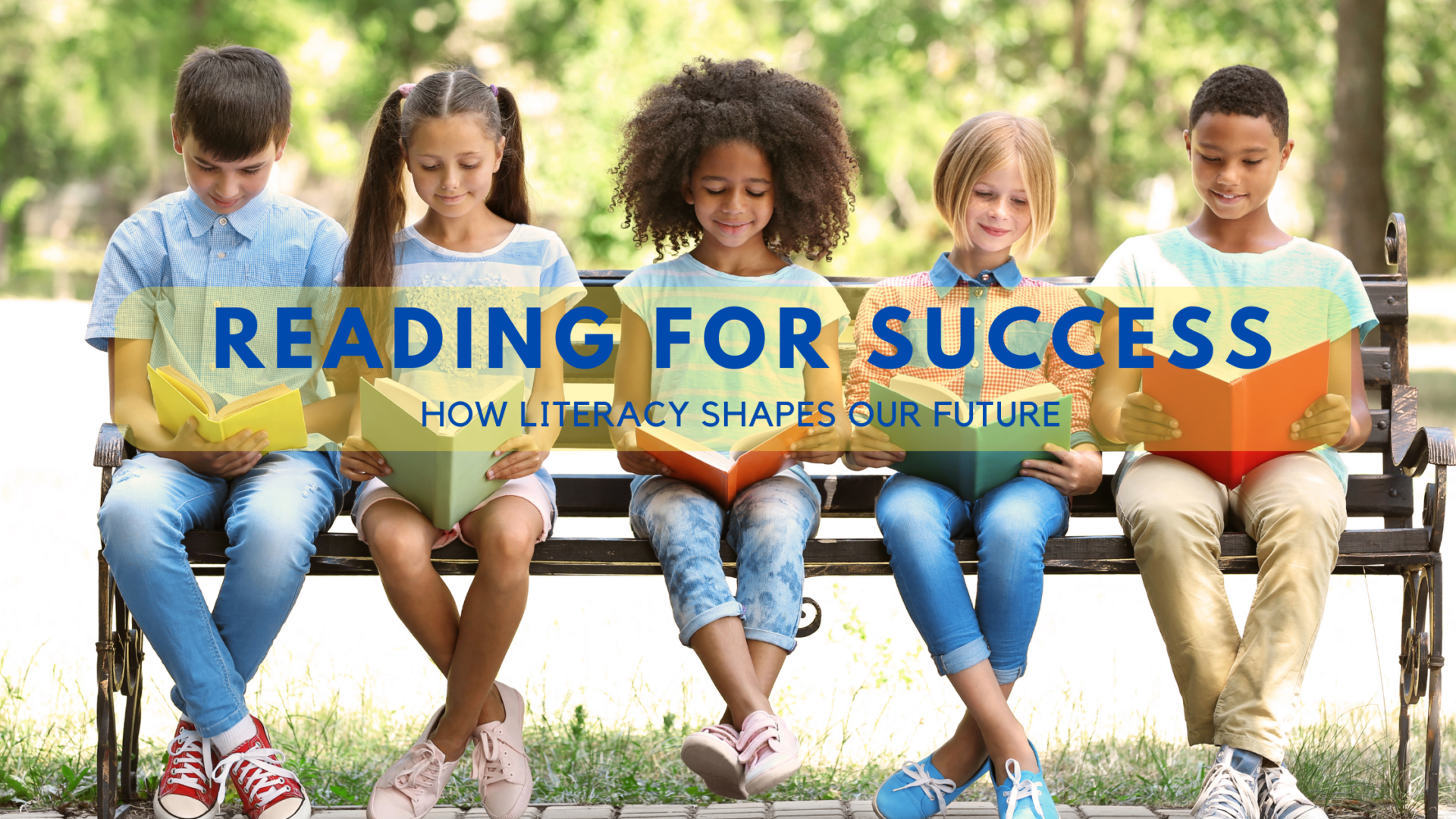
Reading for Success: How Literacy Shapes Our Future
https://patricemclaurin.com/wp-content/uploads/2024/05/2-1024x576.png 1024 576 pmclaurin pmclaurin https://secure.gravatar.com/avatar/14d9f9a6ef8e6cf4818ea0cf92291dd6bd51d25405d18dd5ba8c9a5f629ea1bb?s=96&d=mm&r=gIn today’s fast-paced, information-rich world, literacy stands as a cornerstone of education. In fact, its impact is so profound that it not only shapes individual lives, it shapes whole societies. This article explores how literacy influences educational outcomes, cognitive development, and socio-economic progress.
Enhancing Educational Outcomes
Literacy is the foundation upon which all other learning is built. When children acquire strong literacy skills early on, they are better equipped to succeed across all subjects. Reading proficiency enables  students to comprehend and engage with the curriculum, fostering a deeper understanding of complex concepts in subjects like science, history, and mathematics. Research has consistently shown that students who read at grade level by the third grade are more likely to graduate high school and pursue higher education.
students to comprehend and engage with the curriculum, fostering a deeper understanding of complex concepts in subjects like science, history, and mathematics. Research has consistently shown that students who read at grade level by the third grade are more likely to graduate high school and pursue higher education.
Moreover, literacy skills empower students to be active learners. They can navigate textbooks, research materials, and engage with digital content more effectively. This enhances their ability to participate in classroom discussions and complete assignments. It also leads to better academic performance and a more enriching educational experience.
Cognitive Development and Critical Thinking
The process of learning to read and write stimulates cognitive development, particularly in the areas of language, memory, and problem-solving. Literacy fosters the development of critical thinking skills, as students learn to analyze texts, draw inferences, and evaluate information. These skills are essential not only for academic success but also for making informed decisions in everyday life.
Reading diverse genres, including fiction, non-fiction, and poetry, exposes students to different perspectives and ideas, broadening their understanding of the world. This exposure enhances creativity and empathy, enabling students to relate to others’ experiences and viewpoints. Writing, on the other hand, helps in organizing thoughts, articulating arguments, and presenting ideas clearly and logically.
Socio-Economic Progress
The ripple effects of literacy extend far beyond individual academic achievement, impacting broader socio-economic development. Literacy is a critical factor in reducing poverty and promoting economic growth. Individuals with higher literacy levels are more likely to secure stable employment, earn higher wages, and contribute to the economy. They are also better equipped to adapt to changing job markets, where skills like digital literacy are increasingly important.
Communities with high literacy rates tend to experience lower crime rates, improved public health outcomes, and greater civic engagement. Literate individuals are more likely to participate in democratic processes, advocate for their rights, and engage in community-building activities. Thus, literacy fosters not only personal empowerment but also social cohesion and resilience.
Despite its importance, literacy remains a challenge for many communities worldwide. Socio-economic disparities, lack of access to quality education, and insufficient resources are significant barriers. Addressing these challenges requires a multi-faceted approach, including investment in early childhood education, professional development for teachers, and community-based literacy programs.
Innovative solutions, such as leveraging technology to provide access to digital libraries and educational content, can also play a crucial role. Public-private partnerships and international cooperation are essential in mobilizing resources and expertise to promote literacy globally.
The extended impact of literacy is undeniable. It is a powerful tool that unlocks the potential for lifelong learning, critical thinking, and socio-economic advancement. By fostering literacy, we lay the groundwork for a more educated, equitable, and prosperous society. Ensuring that every individual has the opportunity to develop strong literacy skills must remain a priority in our efforts to improve education and create a better future for all.
Begin establishing home libraries for your young readers with these titles!

